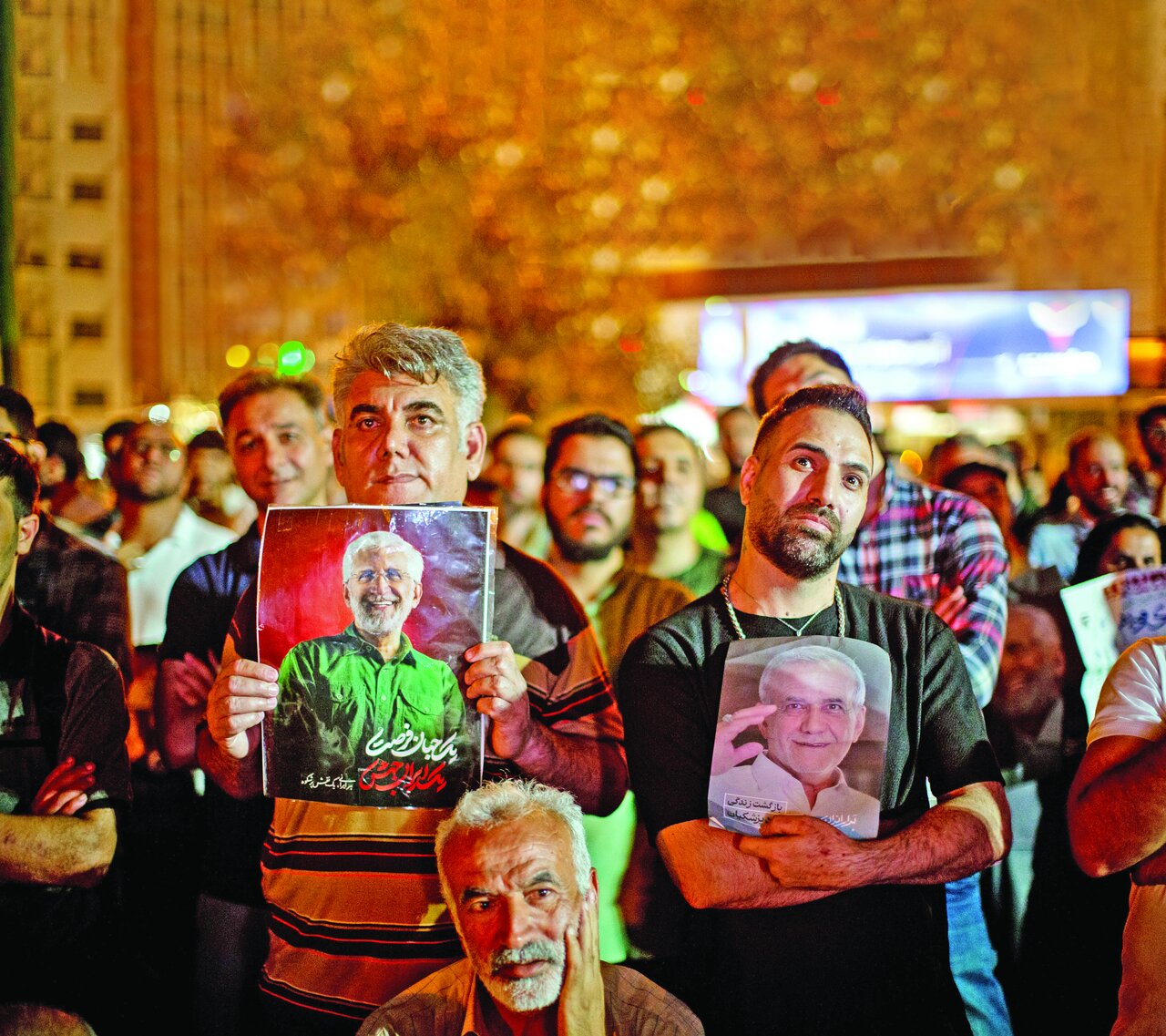Pezeshkian or Jalili, people to decide tomorrow
Iran set to hold run-off presidential elections

TEHRAN – Iranians are set to head to the polls on Friday, July 5, to choose their next president in a runoff election.
Competition is tight between reformist Masoud Pezeshkian and conservative Saeed Jalili who respectively gained 10.41 million and 9.47 million votes during the preliminary round on June 28.
The incoming president will be stepping into the role left vacant by the untimely passing of President Ebrahim Raisi. Raisi tragically lost his life in a helicopter crash on May 19, with more than a year remaining in his term, and was anticipated to secure a second term in 2025.
With a campaign ban taking effect in the early hours of Thursday, we have decided to compare and contrast the plans, perspectives, and campaigns of the two candidates competing in the run-off election in this article.
Debate performance
Pezeshkian’s entrance into the presidential fray was sudden and unexpected. In his own words, he was not expecting to get qualified to run for president, as he had initially failed to get vetted as a nominee by the Guardian Council during the 2023 parliamentary elections.
Jalili believes Iran should make the West “regret” its shunning of the JCPOA.This caused most of Pezeshkian’s appearances on national TV to appear garbled. In many of his debates and addresses to the Iranian populace, the reformist candidate said he needed to “consult experts” on economic and societal issues and refrained from detailing his agenda. While it is in no way bad to seek counsel from experts, some people had hoped that they would hear in more detail how Pezeshkian was planning to govern.
Jalili though, has campaigned for presidency multiple times in the past. He managed to outline more well-received plans and policies during debates. His remarks, however, have sometimes been deemed as too vague or too specific for the general public to understand. The fact that Jalili was allegedly a key contributor to the late President Raisi’s administration, also helped him hold a better grasp of the current issues in the country.
Campaign members
Pezeshkian’s entourage and key supporters are both a strong point and a point of weakness for him, and that’s due to the reformists’ long and eventful time in office. Though Pezeshkian has claimed that he does not align with any political party, any figure or former official ever seen besides him during his campaign has been a reformist or centrist.
Pezeshkian’s key advocates are both a strong and weak point for him.Mohammad Javad Zarif, the former foreign minister who signed the Joint Comprehensive Plan of Action (JCPOA) in 2015, is one of the figures who’s garnered both support and disdain for Pezeshkian. Some like Zarif for having commenced close dialogue with the United States for the first time in decades, and some reprimand him for naively compromising on Iran’s nuclear capabilities without making sure that Washington would uphold its commitments.
As for Jalili, there is no denying that his entourage and associates have been a significant vulnerability for him. Some of his representatives ended up making extremely controversial and uncalculated remarks on TV, making it easier for reformists to stigmatize Jalili as an inflexible and hard figure.
Potential modus operandi
Pezeshkian is seen as a critic of President Raisi’s government. He and his advisors have repeatedly accused the Raisi administration of not caring about the termination of sanctions, saying that a reformist comeback in return would ensure the “normalization” of ties with the West.
That’s while most analysts agree that Raisi’s only difference with his centrist predecessor Hassan Rouhani was that he did not believe in tying the country’s existence to the sanctions removal, and sought dialogue with not only the West but also countries outside the Western hemisphere.
Jalili’s potential administration is considered to be a continuation of martyr Raisi’s time in office. Jalili thinks Iran should make the West “regret” its shunning of the JCPOA. He has not explained how his potential administration plans to do that, but his remarks have been praised by some who believe there is no point in expecting sincerity from the West, as such an approach has failed Iran in the past.
Pezeshkian’s views on the economy seem to be more liberal than his opponent. He believes energy prices should increase and the government must have less control over the market. Jalili on the other hand, is in favor of maintaining and increasing energy subsidies. He also believes that the government must incorporate public participation in the economy, but says the government must still act as a supervising body.
Leave a Comment